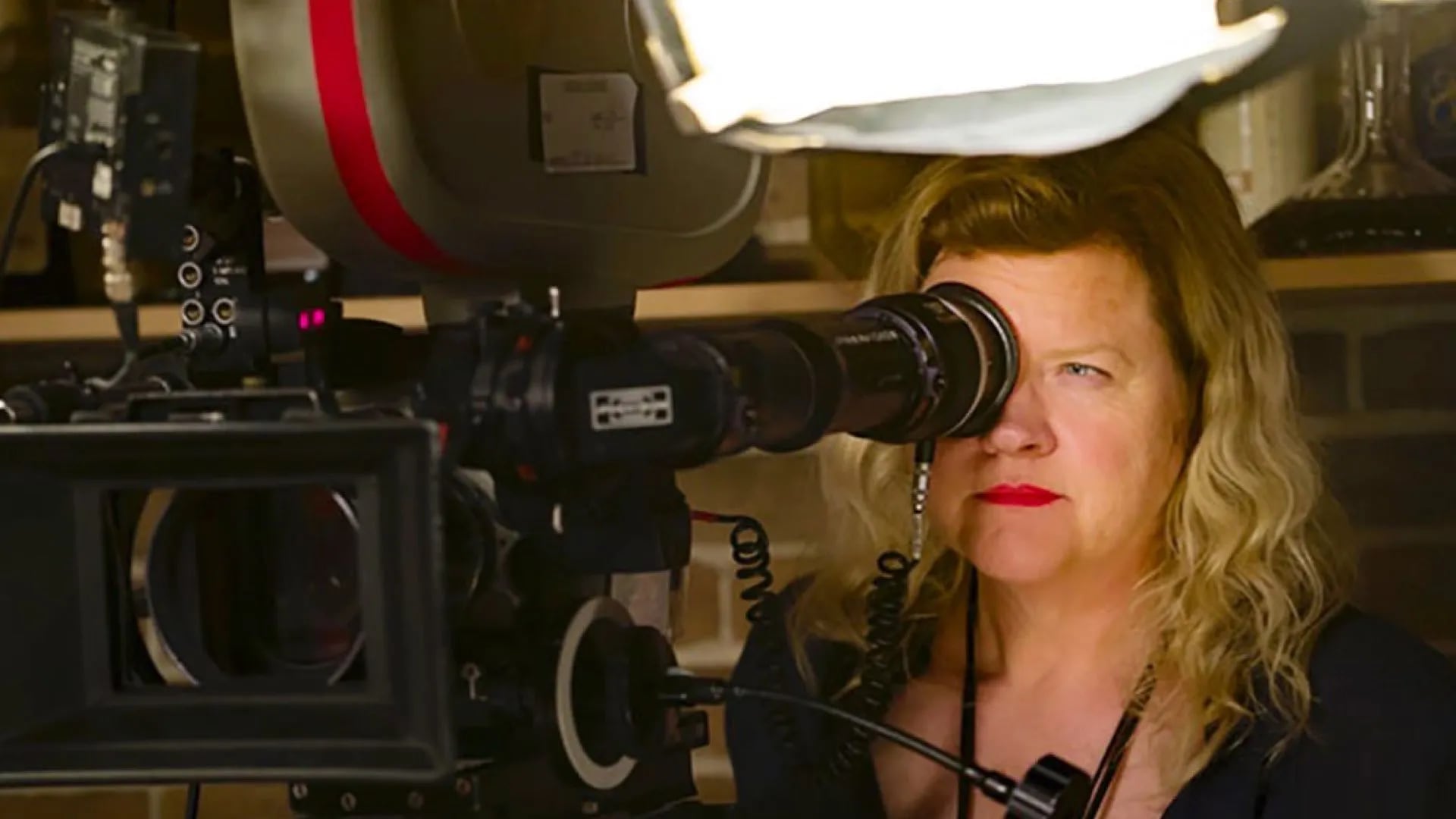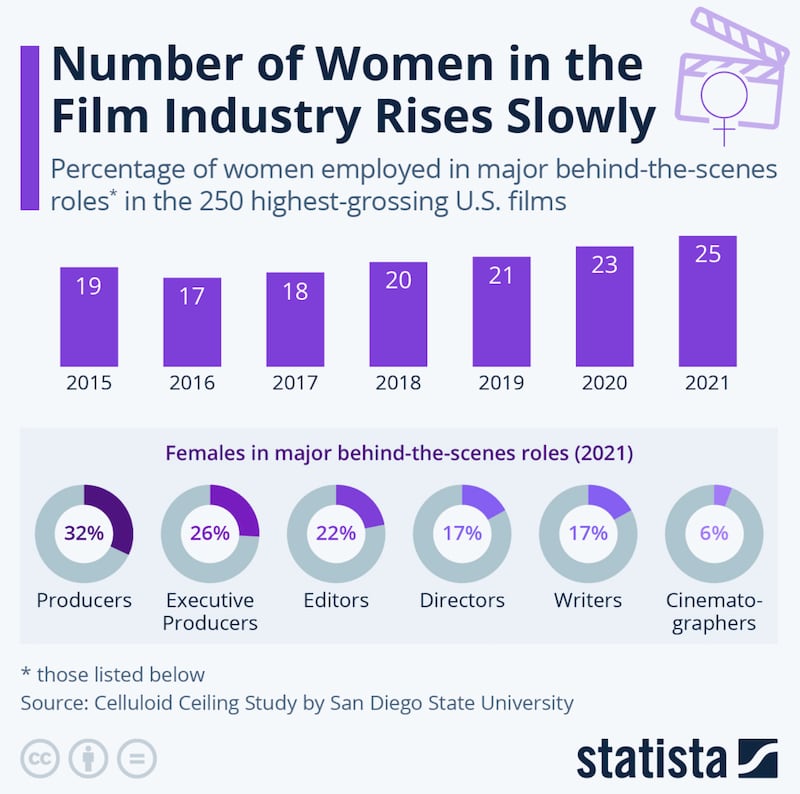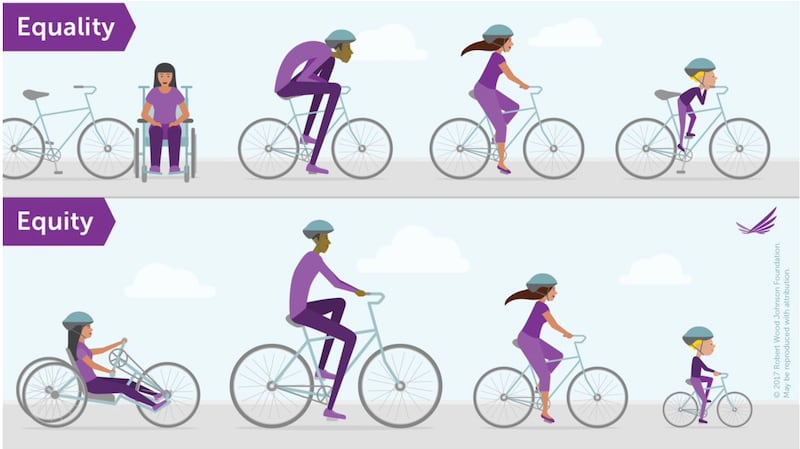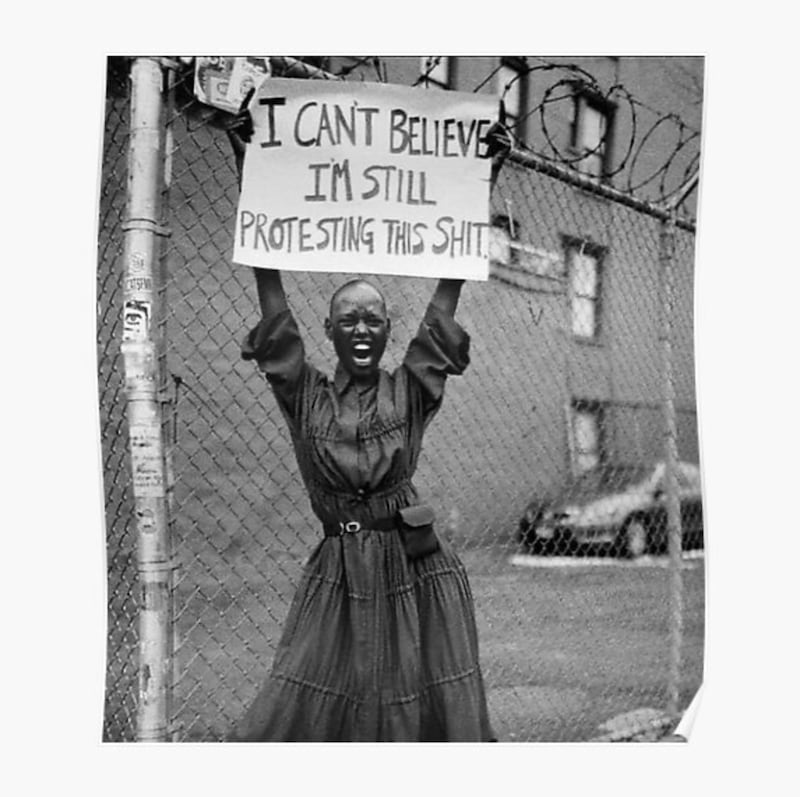
There have been some high-profile and richly deserved awards to women in the industry in recent weeks, but the underlying issues of inequality still persist.
It’s International Women’s Day, so lets start with some good news. At the 37th American Society of Cinematographers Awards in Los Angeles a couple of days ago, Elvis cinematographer, Mandy Walker, became the first woman to win the ASC Award in the feature competition.
She’s also up for an Oscar too. As The Hollywood Reporter notes Walker was only the third woman ever nominated in the ASC feature competition and is also only the third woman ever nominated for a Cinematography Oscar (Rachel Morrison and Ari Wegner were nominated for both, in 2018 for Mudbound and 2022 for The Power of the Dog respectively).
It’s a huge achievement and one to be celebrated. But let’s not get carried away. These women still remain the exception and not the rule in an industry that needs to be doing a lot more about diversity, both in front of the camera and behind it, than it currently is as the graphic below shows.

Source: Statista
The numbers that matter
Look, we can throw numbers and stats at this all day long. But suffice to say that matters in this industry and most others are not equal. The excellent industry advocacy group Rise and the IABM conducted a survey in summer 2020 that reported a 43|57 female to male gender split while there was also a split with women more liable to be self-employed or freelancing. That means less job security and lower salaries in the $80-85K per year average compared to men who bring home $100-135K. And yes, not only will many women be earning below that average, but they will be earning consistently less than their male counterparts in each salary band too.
This status quo however is under pressure as — brace for more good news — in an influential report titled Diversity wins: How inclusion matters, analyst Mckinsey details how diverse organisations have a significant advantage over others in a variety of key indicators. They achieve 83% more engagement from employees, enjoy 20% more innovation, perform 35% better on financial return, and generate 38% more revenue on average.
And, as we’re seeing with current moves towards sustainability in the industry, when you can ally change with economic benefit, actual things start to get done.
From equality to equity
We need to take it further though. The theme of this year’s International Women’s Day is #EmbraceEquity and the organisation explains it well below. First though, here’s a quick graphic that gets it across really quickly.

Equality essentially takes the view that there should be no difference in services and policies. Equity is a longer-term view that addresses imbalanced systems and understands that not everyone has the same starting point.
“Equality focuses on providing all genders with equal opportunities, such as a woman's right to vote. Yet, women often require more than a level playing field,” the IWD website writes. “They need to belong in a global culture that actively promotes and supports them in all aspects of their life, from education to the workplace to health.
“Gender is intersectional, and women as a group are truly diverse. Policies that benefit white women, for example, may not benefit women of color due to historical or current inequalities. A shift from gender equality to the process of gender equity is required for meaningful progress.”
What does that mean in practice? Well, an end to the resurrected snub of women directors at the Oscars would be a nice start, while below that exalted level if we want to see more women in more roles throughout the industry we need greater encouragement to help them to get there. The lesson is that if we want equal outcomes we need to put in more work to level the playing field first.
As Mandy Walker said when picking up her award: “This is for all the women that win this award after me.”
Let’s all work together to help make that so.

(Oh, and for those inevitable comments that will appear below, International Men’s Day is November 19. Enjoy.)
Tags: Business


Comments